A paralegal is someone who does legal work or offers legal services who is not qualified as a regulated provider under The Legal Services Act 2007. Therefore, anyone who isn’t a Barrister, Solicitor or Legal Executive but works in the legal field will be a Paralegal.
By "legal work" we mean advising and assisting with the law. Doing clerical work in a legal environment does not count as legal work, nor does simply doing work which has a legal basis (e.g. most of the day-to-day work done by a police officer enforcing the law).
Many paralegals have different job titles: caseworker, contracts manager, legal assistant, compliance officer, housing assistant, company secretary, volunteer adviser, counsellor, trade - mark clerk etc. Many senior legal secretaries also do paralegal work despite still being called legal secretaries.
You are potentially a paralegal if you do paid or unpaid legal work for your employer or for clients or someone else. Your job title is irrelevant. What counts is that you do legal work sufficiently often to legitimately be considered as a (non-lawyer) legal practitioner. There are many and varied areas of law and practice including family law, wills and succession, estate planning, conveyancing, litigation etc.
Fewer than one in three paralegals works for a solicitors' firm, , or a qualified solicitor. The rest work in both the public sector and the private sector, for the government, the not-for-profit sector, companies, charities, industry, or indeed as a freelance paralegal or as a paralegal law firm.
If in doubt about whether the work you do counts as legal work then ask the Institute at [email protected]. We will be happy to advise you, whether you are a member of the Institute or not.
Legal Support staff
'Legal Support Staff' is the term used to describe people who work in a legal environment (e.g. law firms, legal departments, courts, the police and many government departments etc.) who do not do legal work themselves, but support those who do.
The type of support varies widely, it may be secretarial, accountancy or post room support, or it may be business support: marketing, HR, finance, learning & development and the like. The common thread is that individuals work in a legal environment and so need to be aware of the legal, ethical, regulatory and risk management implications inherent in working in that legal environment.
Do I need training/qualifications?
As the paralegal profession is an unregulated one, there is - generally speaking - no particular qualification you must have to either join the profession or to progress within it.
However, because paralegals are active in so many different types of business, you may find that your particular area of practice has a mandatory training or qualification requirement. For example:
- a particular solicitors’ firm may choose to only hire law graduates.
- If you wish to work in the immigration/asylum sector you will need to register with the Office of the Immigration Services Commissioner, in which case you must pass their stipulated exams
These situations are relatively rare, and most paralegal positions do not require a particular qualification or prior training - although of course having relevant qualifications or training may make you more attractive to employers or help you progress your career faster. We advise getting relevant training where possible for these reasons.
What courses are suitable for me?
We recommend that where possible:
- choose a practical/vocational law course over an academic one: employers prefer training which can be used in the workplace
- choose a law course which leads to a recognised qualification
- focus on your chosen area of practice (e.g. conveyancing) and study that in-depth rather than studying a variety of practice areas in a shallow manner (paralegals tend to specialise in one area of practice so choose your area of practice and become as expert as reasonably possible in that one area)
- you avoid courses shorter than a week’s full-time study
Should I do a law degree?
Some jobs will require a law degree and some will only be open to graduates. If you are going for one of those jobs, then you may wish to think about doing a law degree. You may, of course, also wish to become a university graduate in any event.
However, most paralegals do not have law degrees. In our experience perhaps the majority of employers seem to think that law degrees are too academic to be of much assistance in the workplace. Therefore, if you do not need to be a law graduate, but you wish to be a paralegal, there are almost certainly cheaper, quicker, more appropriate law courses that you can take and which will be better recognised by many employers.
Should I do the LPC/BPTC?
A small number of paralegal jobs (mostly those in larger solicitors’ firms) will require you to have successfully completed the Legal Practice Course or the Bar Professional Training Course.
If you are going for one of those jobs, then you may wish to think about doing the LPC/BPTC.
However, the courses are very expensive and very demanding and take a year to complete when studied full-time. Also they are not intended for paralegals. The LPC is designed for would-be solicitors and assumes that you have just completed an approved law degree. The BPTC is designed for would-be barristers and also assumes you have just completed an approved law degree.
Both courses cover a broad range of topics, whereas of course most paralegals specialise in just one practice area. Therefore, a lot of what you would learn will prove irrelevant in your job. This is especially so with the BPTC as it focuses on the skills of a barrister needs - and most of those skills are very specific to being a barrister and not of particular relevance to paralegals.
Most paralegals do not have the LPC/BPTC and in our experience most employers do not expect it. The (misleadingly high-profile) exception are City solicitors’ firms and some of the larger national commercial solicitors’ firms. They tend to want LPC graduates. But this is primarily because they expect them to stay for no more than one year, relying on having worked in a top law firm for a year to enable them to get a solicitor training contract in a smaller solicitors’ firm the following year. Although technically paralegals, such LPC graduates would be more accurately described as solicitors or barristers in waiting.
In summary, some LPC/BPTC graduates become paralegals because they cannot get solicitor training contracts or a barrister’s pupillage. However, we would not recommend you take the LPC/BPTC with the intention of getting a job as a paralegal, as there are almost certainly cheaper, quicker, more appropriate law courses that you can take.
Who hires paralegals?
Almost everyone!
Paralegals work in solicitors' firms; paralegal law firms; the in-house legal departments of large companies; in central and local government; for charities and the not-for-profit sector. Even the military uses paralegals.
School leavers with work experience or undertaking paralegal qualifications are in demand by legal teams. Joining the Institute of Paralegals even as a student will help you to develop your career.
In local government paralegals work in trading standards departments; parking prosecution; benefit fraud prevention; estates management etc.
Law schools and those qualifications under the Education and Training Network offer courses for all stages of career development.
Paralegals who are members of the IoP and are independently regulated by the PPR are the only paralegals who are licensed via their Paralegal Practising Certificate.



